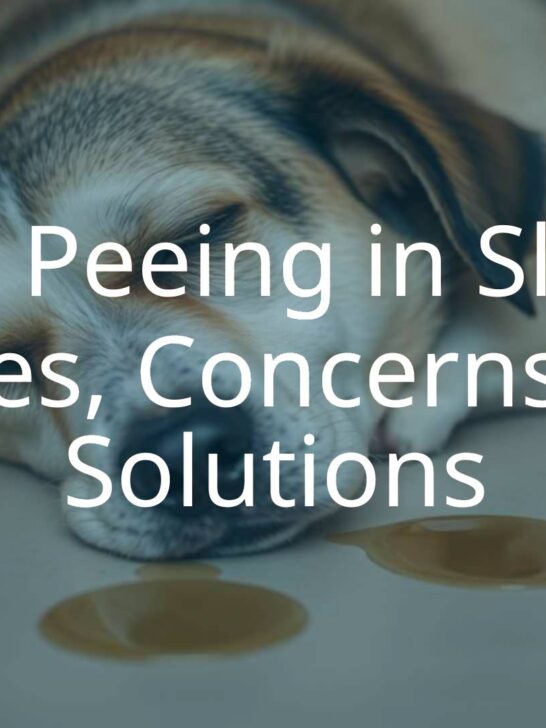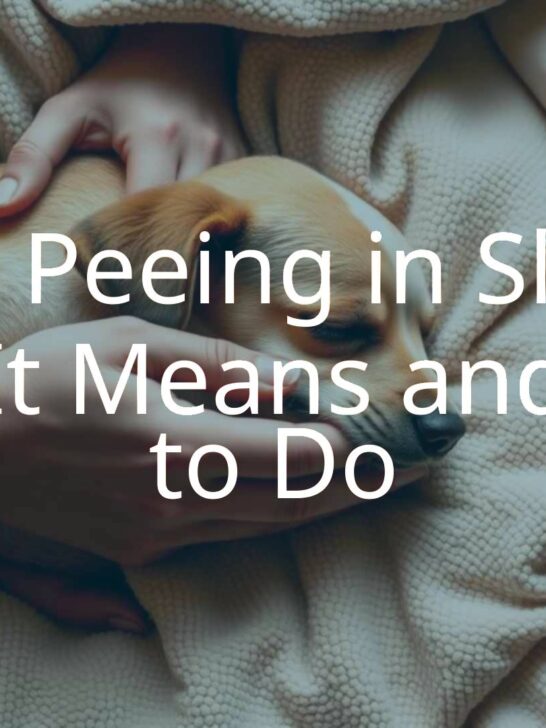Is Incense Bad For Dogs?
Incense is often used to create a relaxing or calming atmosphere, but it can be harmful to dogs.
In the following article, you will learn about the dangers of incense for dogs and how to keep your pet safe.
What is Incense?

Incense is a burning material that releases fragrant smoke when lit. It’s made from natural materials, including tree resin, herbs, spices, and wood.
It has also been part of religious and spiritual ceremonies for ages.
Today, however, it’s widely used in people’s homes for relaxation and stress relief purposes.
When burned, incense can purify the air, reduce stress levels, and improve your mood. It can also cover up unpleasant smells and create a peaceful atmosphere.
Why is Incense Bad for Dogs?

Burning incense at home where your dog lives can be dangerous for them. Below you’ll find possible outcomes of exposing your dog to incense.
Pet Asthma
Just like humans, pets can suffer from asthma. It is estimated that one in every hundred dogs has asthma.
The exact cause is unknown, but it’s believed to be triggered by environmental factors such as dust, pollen, and smoke. For that reason, it’s not recommended to burn incense near your pet.
Symptoms of pet asthma include wheezing, coughing, and difficulty breathing. If left untreated, asthma can be fatal.
Fortunately, there are many treatment options for pet owners. Traditional treatments typically involve using inhalers or steroids to reduce inflammation in the lungs.
Alternative therapies such as acupuncture or homeopathy may also be effective in some cases.
Irritating Smells
Smells can be incredibly potent, and even a tiny amount of a particular scent can profoundly affect a person’s mood and well-being.
For dogs, aromas are even more critical, as they rely heavily on their sense of smell to navigate the world and communicate with other dogs.
Unfortunately, common household smells can irritate dogs, and incense is one of the worst offenders.
The smoke from incense sticks contains various harmful chemicals, which can cause respiratory problems and skin irritation in dogs.
In addition, the pungent smell of incense can be overwhelming for dogs and may lead to anxiety or stress.
Lastly, the smoke from burning incense can irritate a dog’s lungs, and the fumes can be toxic if inhaled in large amounts.
Fire Hazard
Many people don’t realize that the burning coal at the end of the incense stick can reach up to 400 degrees, making it a serious fire hazard.
If a dog knocks over an incense holder, the result could be a devastating house fire. That’s why you should never leave a burning incense stick unattended.
How to Burn Incense with Dogs in the House

Whether you are a spiritual person or just love the smell of incense burning at home, you can do a few things to keep your dog safe and still benefit from incense usage.
Proper Ventilation
If you have a dog and plan to use incense, it’s crucial to have proper ventilation in your home. Incense can be harmful to dogs if exposed to it for too long.
In fact, some incense contains chemicals that can be toxic to dogs if inhaled.
Also, just in case, keep your dog away from the area where you’re burning incense. If you have an indoor dog, bring it to a different room.
Choose a Safe Spot for Placement
Dogs are very curious creatures. For that reason, it’s better to keep your incense sticks out of reach. A high shelf or a countertop, for instance, are good places to store them.
Also, avoid placing incense near windows or doors, where drafts could cause the flames to dance erratically.
Alternatives to Incense
There are several alternatives to incense that can be just as effective (and safe) for aromatherapy. Some of the most popular options include essential oils, candles, and diffusers.
Essential Oils

Essential oils are rising in popularity. They are made from the natural essences of plants or flowers and contain therapeutic compounds that can benefit the mind and body.
They can be used in various ways, including inhalation, topical application, or ingestion. Also, they are a great alternative to incense, and they’re safer for dogs.
These oils can help calm and relax your dog, and they’re gentle on their respiratory system.
You can use a diffuser to disperse the oil into the air or add a few drops to your dog’s favorite blanket or toy. Good essential oils for dogs include lavender, chamomile, and lemon balm.
With a little bit of experimenting, you can find the perfect essential oil blend for your home that will make it smell great – without harming your furry friend.
Diffusers
Diffusers create a fragrant mist that can purify the air and boost your mood. They won’t cause any respiratory problems to your dogs and can never start a fire.
Febreeze
Febreze is a popular alternative to incense that does not release any harmful chemicals. Instead, it captures odors and refreshes the air.
There are no health risks associated with Febreeze, so it’s a perfect alternative to incense.
Candles

Candles are another popular alternative to incense. They come in many shapes and sizes and can be used to create a relaxing atmosphere in any room.
They are also a great way to enjoy the benefits of aromatherapy and are a safer alternative, as they do not produce smoke. However, candles can still be a fire hazard, so it is vital to use them cautiously.
Lastly, they do not smell as strong as incense, so they won’t irritate your pet.
Air Purifiers
Air purifiers use filters to remove airborne contaminants such as dust, pollen, and pet dander, providing a cleaner and healthier environment for both humans and animals.
They use ultraviolet light, which reduces the spread of germs and bacteria. This makes them an excellent choice for homes with sick or elderly pets.
Homemade Scents
You can easily make scents at home using cinnamon sticks, citrus peels, nutmeg, vanilla beans, or simmering cloves.
This way, you will not only save money, but you won’t have to worry about the dangers of store-bought incense to your dogs.
In fact, making homemade scents can become an activity you can enjoy with your entire family.
What NOT to do When Using Incense

There are a few things you should avoid doing when burning incense in your home.
- Don’t leave a Burning Incense unattended: Incense should never be left unattended, especially if you have pets in the house. If you need to leave the room, make sure to extinguish the incense first.
- Don’t Burn Incense Near Your Dog: As mentioned earlier, dogs have a much keener sense of smell than humans, so they can be more susceptible to the harmful effects of incense smoke. To avoid any problems, it’s best to keep incense sticks out of your dog’s reach.
- Don’t Inhale Incense Smoke Directly: Incense smoke can irritate the lungs, so it’s important not to inhale it directly. If you’re using an incense burner, keep your head above the smoke. You can also try using a fan to disperse the smoke and make it easier to breathe.
- Don’t Burn Incense in a Closed Room: When burning incense, it’s essential to keep the room well-ventilated. Incense smoke can build up quickly in a closed space, so be sure to open a window or door to let the smoke out.
What to do in Case Your Dog Reacts Negatively to Incense

If you think your dog is having an adverse reaction to incense, the best thing to do is remove them from the smelly area.
If they have difficulty breathing, call your veterinarian or local emergency animal hospital immediately.
While most dogs will be able to tolerate the occasional whiff of incense smoke, some may be more sensitive to it.
If you notice that your dog is coughing, sneezing, or wheezing after exposure to incense smoke, it’s best to avoid using it altogether.
Conclusion
If you’re not keen on removing incense altogether from your home, there are things you can do to keep your furry friend safe.
It’s your responsibility as a dog owner to choose a safe spot for hiding incense sticks and properly ventilate your home after burning them. Remember, your dog counts on you!
Resources:



















